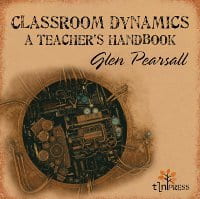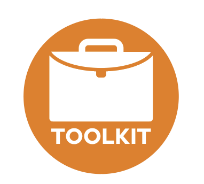
Edition #7
HOW DO I COPE WITH A CHALLENGE?
In this seventh edition of the Graduate Teacher Learning Series, we explore how to cope with challenge. Articles in this edition explore developing positive mindsets, strategies for successful reporting to parents, and tips on managing challenging conversations. In the Toolbox for this edition we continue our Mentor Conversations series, and invite you to register for the Graduate Teacher Conferences. We also continue Playing with Podcasts where we talk to graduates, their mentors and experts as well as the “Meet the Graduate” segment where we take a few minutes to meet graduates from around Victoria.
PUBLISHED DATE: 24th July 2019

We are running a competition.
The first 20 people to read Edition 7, complete the feedback survey and then email a screenshot of your responses to ben@tln.org.au
will receive a free copy of
Glen Pearsall’s “Classroom Dynamics” book.

THE TEACHING YEAR
In this edition, Belinda talks about setting up healthy habits for yourself and your students. The way you set yourself up and organise yourself will have a flow on effect to your students as they can see you modelling good organisational skills within your classroom.
FEATURE ARTICLES:
In each edition we will feature articles written by various authors around three key areas.
1. Student Engagement as a Behaviour Management Strategy
2. Teacher Wellbeing & Resilience
3. Using Formative Assessment to Improve Learning
The three feature articles for this edition can be accessed from the links below.

DEVELOPING POSITIVE MINDSETS FOR LEARNING
FOCUS AREA: Student Engagement as a Behaviour Management Strategy
By: Tanya Whiteside teaches at Berwick Fields Primary School and Swinburne University
“The love of learning and the ability to thrive on obstacles.” Tanya Whiteside discusses the links between strong relationships, positive mindsets and the use of high impact strategies to support students to be strong, independent and motivate learners.
MANAGING CHALLENGING CONVERSATIONS
FOCUS AREA: Teacher Wellbeing & Resilience
By: Simon Judkins teaches at Camelot Rise Primary School
When we think about challenging conversations, our minds can often leap straight to a ‘worst-case scenario’ involving an angry or upset parent – many teachers have experienced an incident along these lines. But the truth is that challenging conversations come in many guises, and they can be some of the most rewarding things we do as teachers.
REPORTING ASSESSMENT OUTCOMES TO PARENTS
FOCUS AREA: Using Formative Assessment to improve student learning.
By: Emma Parnell: Literacy Leader Pearcedale Primary School
Communicating learning goals, collecting evidence, writing reports and conducting parent-teacher conferences – Emma Parnell provides practical tips and some useful resources to make reporting to parents clear and effective.
MEET THE GRADUATE
“It was really fun, everything pretty much went to plan, and it was great.” Graduate Nicole Williams talks about her first day in the classroom and how valuable she found feedback from her peers, her mentor and the school principal.

PLAYING WITH PODCASTS
Playing with podcasts brings together the different perspectives of graduate teachers, mentors and experienced teachers.
In this edition, our interviewees Belinda and Isobel, bring their different perspectives to the question of ‘How do I cope with a challenge?’
In addition to this we have Hannah and Linda from the Victorian Institute of Teaching (VIT) discussing the registration process and what graduates need to do to move from Provisional to Full Registration.
Interview with a Graduate
Interview with a Mentor
Interview with an Expert

MAKING THE MOST OF MENTOR CONVERSATIONS
“A challenging conversation is one where one or both parties have difficulty giving or receiving information and therefore, there is often emotion involved.” Susan Vissenjoux has some tips for for graduate teachers on how to manage them.
UNDERSTANDING THE EDUCATION LANDSCAPE
Learning Places is the regional operating model for the Department of Education and Training which came into effect in March 2016. It is a model of place-based service delivery designed to improve the level of support the Department provides to different parts of the education system and to local communities.
WHAT WORKED FOR ME
Recent graduate teacher Noah Kim reflects on professional growth over the teaching year and the importance of peer observation and feedback.
Noah Kim (Featherbrook College) is beginning the 2nd year of teaching after graduating from RMIT Brunswick in 2017.
GRADUATE TEACHER CONFERENCES
The Graduate Teacher Conferences are in full swing. Haven’t registered yet? There is still time and we are looking forward to exploring some of these ideas with you
Victorian Institute of Teaching
The Victorian Institute of Teaching (VIT) is an independent statutory authority for the teaching profession, whose primary function is to regulate members of the teaching profession. It is a legal requirement for all teachers to be registered with VIT in order to be employed in a school or early childhood education and care service or Victorian children’s service.
The VIT specifies the requirements for moving from provisional to full registration on their website. After graduation, graduate teachers register with the VIT as provisionally registered teachers. To achieve full registration by the end of the second year of teaching, graduate teachers must provide the VIT with the evidence that they:
- have met the Australian Professional Standards for Teaching at the proficient teacher level using the inquiry approach, and
- have taught for a total of at least 80 days in one or more Australian or New Zealand schools or early childhood services.
Teacher mentors work with graduate teachers to undertake professional learning, which may include peer observation to continuously improve their teaching, collect evidence of their work and apply for full registration.
For further information see: www.vit.vic.edu.au/registered-teacher/moving-to-full-registration
eduPay
eduPay is the Department’s HR and payroll system. You can apply for leave and check your leave and pay information using eduPay Employee Self Service (ESS).
You can login to eduPay System via your school internet connection at: https://edupay.eduweb.vic.gov.au/
If you wish to access eduPay and ESS from an external location, such as from home, you can login at: https://ess.sras.eduweb.vic.gov.au/
Edumail
Edumail is the Department’s email system system. You can access your emails and digital communications using Edumail.
You can login to the Edumail System via the following linkt: https://www.edumail.vic.gov.au
Australian Education Union
The Australian Education Union (AEU) represent and advocate for all teachers, principals and support staff working in government schools, early childhood, TAFE, disability and adult education.
The AEU note that “graduate teachers face specific challenges at work” and have developed a specific resource for graduate teachers which includes a New Educators Network (NEN) and information about pay and conditions.
For further information see: https://www.aeuvic.asn.au/your-job/graduate-teachers
Victorian Curriculum and Assessment Authority
The Victorian Curriculum and Assessment Authority (VCAA) provides high-quality curriculum, assessment and reporting advice for all Victorian students. Engagement with the resources will depend on the learning area and level being taught.
The following links will provide graduate teachers with further information regarding:
- Victorian Early Years Learning and Development Framework (VEYLDF) – https://www.vcaa.vic.edu.au/Pages/earlyyears/index.aspx
- Victorian Curriculum F-10 – https://www.vcaa.vic.edu.au/pages/foundation10/f10index.aspx
- National Assessment Program Literacy and Numeracy (NAPLAN) – https://www.vcaa.vic.edu.au/Pages/prep10/naplan/index.aspx
- Victorian Certificate of Education (VCE) – https://www.vcaa.vic.edu.au/Pages/vce/index.aspx
- Victorian Certificate of Applied Learning (VCAL) – https://www.vcaa.vic.edu.au/Pages/vcal/index.aspx
The VCAA also implements Vocational Education and Training (VET) opportunities for senior secondary students and celebrate student achievement through excellence and awards programs, such as the Season of Excellence.
For further information see: https://www.vcaa.vic.edu.au/
FUSE
FUSE is a Department portal with a wide variety of teaching resources. You can use FUSE to:
- DISCOVER: filter, browse and discover resources for learning and teaching
- ENGAGE: immerse yourself in content with a range of great resource types, as a teacher you can even create groups and personalise resources
- SHARE: connect your learning and teaching with others by using the sharing features on all FUSE resources
You will need your eduMail details to access some features of FUSE, such as uploading your own content and sharing packages of resources.
For further information see: https://fuse.education.vic.gov.au/
In Our Classrooms
In Our Classrooms is an online space for teachers to find best practice approaches, evidence-based classroom resources, professional development opportunities and stories that celebrate the education profession. New articles are sent automatically in a newsletter each fortnight to all Victorian government school teachers, but In Our Classrooms is open to anyone interested in best practice in education and evidence-based teaching approaches.
For further information see: https://www.education.vic.gov.au/school/teachers/classrooms/Pages/default.aspx
To subscribe to In Our Classrooms: https://confirmsubscription.com/h/d/9DC75686B8867D58
The Victorian Teaching and Learning Model
The Victorian Teaching and Learning Model (VTLM) brings the framework for improving student outcomes (FISO) into the classroom. It creates a line of sight between the whole-school improvement approach and classroom practice.
The Victorian teaching and learning model consists of four components:
- A Vision for Learning helps create a unified set of values and beliefs to drive a high performance learning culture.
- The Practice Principles for excellence in teaching and learning (Practice Principles) are nine signature pedagogies which make the difference in improving student achievement and motivation.
- The Pedagogical Model describes what effective teaching looks like in the classroom and helps teachers apply the practice principles.
- The High Impact Teaching Strategies (HITS) are ten instructional practices that reliably increase student learning wherever they are applied.
For further information see: https://www.education.vic.gov.au/school/teachers/teachingresources/practice/improve/Pages/Victorianteachingandlearningmodel.aspx
The Literacy Teaching Toolkit
The Literacy Teaching Toolkit provides practical advice and high impact teaching practices that improve outcomes in reading, writing and speaking and listening. It includes specific resources for teaching literacy in Primary and Early Childhood as well as a guide to designed to support school leaders and teachers to understand and use the toolkit.
For further information see:
School Term Dates
You can access the School Term Dates and Holidays in Victoria through the following link:
https://www.education.vic.gov.au/about/department/Pages/datesterm.aspx?&Redirect=1
The Learning Series is designed for you, the Graduates and it is important that you provide feedback and share your ideas so that we can continue to develop and improve the content for our future issues.
Your feedback drives the ways in which we plan and present the content in each edition so please take the time to share your thoughts and ideas and play a role in driving this program.






